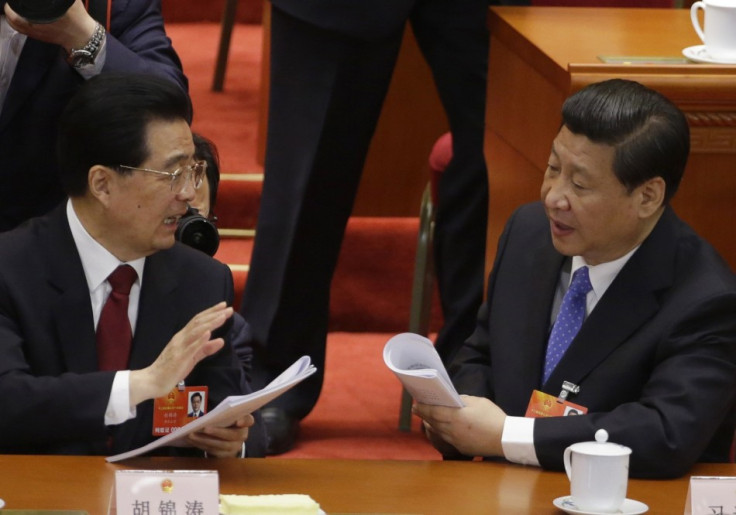China Targets 7.5% Economic Growth Ahead of Power Transfer [VIDEO]

China's National People's Congress has opened the session which will ratify its once-in-a-generation leadership change, setting a 7.5 percent target for economic growth in 2013.
Outlining the country's priorities, premier Wen Jiabao has pledged to maintain GDP growth at last year's level, along with a raft of other proposals which include anti-corruption and welfare measures.
"Last year, while world economies were retracting, China has prevented a downslope. We have achieved a 7.8 percent GDP growth, 16m new jobs, laying a good foundation for this year's economic growth," Wen said at the start of his final address before stepping down.
Underlining the need to stimulate private investment, Wen added: "In the current stage, the role investment plays in promoting economic growth cannot be underestimated. Governmental investment is important in guiding non-governmental investment, but its share of the country's total investment is decreasing, so we must further relax controls over market access for non-governmental investment and stimulate it."
Nearly 3,000 delegates are attending the Congress, which is taking place at the Great Hall of the People.
Wen stressed the need to improve living standards, saying: "We must make ensuring and improving people's well-being the starting point and goal of all the government's work, give entire priority to it, and strive to strengthen social development."
Although the address has been delivered by the outgoing premier, the consensus documents have been approved by the incoming leadership.
Defence Spending up 10.7%
The draft defence budget, submitted to the Congress, proposes a 10.7 per cent hike in spending, put at $116bn [€89bn, £77bn]. This comes in the wake of the country's serious territorial disputes with its neighbours, including Japan. Military expenditure, which has increased consistently over recent years, rose 11.2 percent in 2012.
During the week-long assembly session, Xi Jinping will take over from Hu Jintao as Chinese president. The power transition is being keenly followed by analysts from across the world.
The new leadership, compared to its predecessor, is facing a tough challenge from various sections, including from its own people. The growing influence of social media and a more outspoken public are forcing the Communist Party to openly address people's concerns.
"We should unwaveringly combat corruption, strengthen political integrity, [and] establish institutions to end the excessive concentration of power and lack of checks on power," said Wen.
© Copyright IBTimes 2025. All rights reserved.






















